 Psychology, Sex Ed, Social Studies, Uncategorized
Psychology, Sex Ed, Social Studies, Uncategorized  10 Comments
10 Comments Everybody needs a sherpa
I’ve always been comfortable around guys; for many periods of my life, I’ve been more comfortable with guys than other women. Part of this was about common interests. From preschool to high school, if I wanted to hang out with other people who loved Star Wars and sci-fi/fantasy and punk rock and hobby games, that pretty much left me with male companions. For instance, I was the only female among 23 males in the high school Strategy & Tactics Gaming Club. It wasn’t until I got to college that I met other women who liked the same things I did, but even still, I felt more at home around men. They were less maintenance, less complicated, and to a girl with Asperger’s (though I didn’t know it then), the big surface emotions of my male friends were far easier to navigate, and less fraught with booby-trapped layers of meaning, than my interactions with the majority of the females I knew.
It’s not that hard to get into those male social groups. You prove you can give as good as you can get on crass humor and double (or, in the case of high school guys, single) entendres. You show that you can avoid overt emotional displays that make them uncomfortable, but also that you can be a silently commiserating soundingboard on those occasions (read: breakups) that demanded support and solidarity.
I was so successful at this that I sat, one female in a car with six other males, through a one-hour conversation about all the mysteries of the fairer sex. Only ten minutes from home–after a pee break on the side of the country road, in which I clearly did not participate, for heaven’s sake–did someone pipe up, in a tone of dawning discovery, “Hey! Jess is a girl! We can ask Jess!” I didn’t know whether to be insulted that this feature of my identity had been so thoroughly forgotten, or flattered that I’d assimilated into their group so seamlessly. The sudden and emphatic arrival of the Boob Fairy around my junior year of high school was the only thing that disturbed my status, but even that came to be regarded as a sort of personal quirk, as if I’d shaved my head without warning–a change, to be sure, but superficial and easily ignored once the novelty had passed. So I’ve got a very thick skin when it comes to matters of sexism and creepiness. Part of that also came as defense in the wake of my sexual assault and abusive relationship–if every expression of sexism has the capacity to personally wound, how would any person ever recover from overt damage?
Obviously, though, because I’m an attentive, intelligent, enlightened woman, I perceive sexism in my environment, as it’s expressed both individually and institutionally. There’s been a great deal of discussion about this lately, especially in the context of the Internet. Sady Doyle of Tiger Beatdown collected comments from fellow female bloggers, made by men, attacking them specifically and often violently as women when they didn’t agree with their arguments; in many cases, the initial argument had absolutely nothing to do with gender. A Twitterstorm blew up around similar attacks on women who play multi-user video games. The basic pattern is this, for those of you who haven’t followed these discussions: Woman says X. Man disagrees with X. Man does not say, “I disagree with X because of Y.” Man instead says, “You’re a stupid whore for thinking X. I hope someone rapes you to death.” Woman decides to shut up instead of writing about Z. It doesn’t take a rocket scientist to see sexism in this.
A secondary pattern has emerged when lots of my fellow smart, sensitive friends of both genders discuss the ways in which the enviroment for women is not the same as men. People of earlier generations thought they were being enlightened and anti-racist by saying, “I don’t see race” or “There are no black or white people; we’re all our own individual shades of human.” This is no longer acceptable, because duh, of course we see race, and racism is real, and pretending it’s not relevant doesn’t fix anything. Similarly, some men, when confronted with something which screams SEXISM to women, say well-meaning but unhelpful things like “No, no, it’s not sexism, it’s this other thing,” or (even more maddeningly) “You say those behaviors make you feel scared/threatened/objectified? No, you actually feel this other thing.” As if my lady parts somehow impaired my feelings.
Here’s the thing: If someone feels a particular way in response to something, that’s how they feel. That feeling is valid, and they really are feeling it, even if it’s completely incomprehensible to you how they could feel that way. You can try to explain how you see that something differently, but it is Highly Inadvisable to tell someone that they are feeling it wrong, especially if you are not a member of the class that is particularly singled out or threatened by that thing. So if a person of color says something feels racist to them, or a woman says something feels sexist to them, the correct answer is, “I’m sad to hear that you’re so upset by that” or “I can tell it really bothers you.” In fact, this is just a general Rule of Thumb in life–people feel how they feel, and nobody knows better than they do what those feelings are.
Nobody would argue that some of these situations are clearly sexist. I’ve had entire conversations in which I felt like I, too, should be looking at my breasts. But the saddest thing about this whole sexism debate is that, often within geek/nerd culture, there’s a fundamental disconnect between a man’s intention and a woman’s reception. Things that men do to express their admiration for women frequently make those women feel creeped out, the exact opposite reaction the men are trying to elicit. I’ve known guys who lavished extravagant compliments, frequently couched in quasi-faux-RenFaire-style language and great flourishing gestures, on women who are painfully embarrassed at being singled out for such attention. Those women seek to put as much distance between themselves and that attention as possible, and contrary to the man’s intention, they feel objectified–they feel that all that flowery language and dramatic attention would be directed at any woman, by virtue of being a woman. The objectified gaze is not the same thing as the public gaze. Sure, this sounds very Women’s Studies 101, but it’s true nonetheless. There’s a world of difference between being looked at and admired for a striking, elaborate costume or a particularly smart/funny/insightful comment, and being stared at like a piece of meat.
But sexism is so much more than this, and it’s so complicated, even women argue about this stuff. And frankly, a lot of it is gut reaction. Anyone would feel threatened if someone says, “I hope someone stabs you to death.” You get a cold ball in the pit of your stomach and a hot rush up the back of the neck. You feel queasy, your vision blurs, the space around you seems to shift unexpectedly. You need to run. This is primal stuff–flashes of neurochemicals deep in your amygdala and hippocampus–pure lizard brain, fight-freeze-or-flee response. It’s your danger sense. It can save your life.
But it doesn’t only get triggered by death threats. Those same chemicals kick in when someone’s creeping on you, and you can’t always explain it. I’ve never been explicitly threatened with sexual violence at a gaming convention, but I’ve been creeped on. The time that sticks out most vividly had no sexual overtones at all. The guy started with the extravagant attention that I described earlier, despite the presence of my husband at the table and a two month old baby in my arms. He made persistent decisions that forced our characters into proximity, and he “roleplayed” that with physical proximity that violated all acceptable boundaries among strangers. This man was so close and so loud and so intrusive, he actually startled my son awake; the baby wouldn’t stop crying until I left the room entirely. I shook badly, and worked to swallow my nausea as my husband and friends tried to comfort me. My reaction was as violent as the one that followed a too-close brush with stranger rape years earlier.
I can’t explain this, but if someone tried to convince me I shouldn’t have felt threatened or completely creeped out because I wasn’t in actual danger, or that the root of that interaction wasn’t sexist, I may slap that person. My feelings were very real, and therefore very valid. I have an unexpectedly strong sensory memory of that event even now, almost ten years later. And, really, do you want to train women to turn off that response? Do you want women to stop listening to those early, physically rooted danger senses that tell them something is not quite right? It happens, you know–women are taught to mistrust those feelings. It’s called gaslighting, from the unforgettable Ingrid Bergman/Charles Boyer movie Gaslight. When women stop listening to their danger sense–that creeped-out feeling–it makes it easier to manipulate and abuse them.
So please, don’t tell anyone who says they’re feeling singled out, discriminated against, or creeped out that they’re not entitled to feel that way. Racism and sexism are real, and they have undeniable histories (and current realities) of violence. If someone tells you that what you’re doing is creepy, just stop. If you don’t understand why that behavior registers as creepy, ask others. If they say, “If you can’t tell, I can’t help you,” keep asking until someone explains it in a way you can understand.
This stuff is as complicated as human nature, and everyone needs a guide, women just as much as men. If you want to understand, surround yourself with sherpas–folks who have seen the terrain before, know where the pitfalls and footholds are, and can explain the culture you’re exploring. Don’t have someone you feel you can ask? Ask me. Gods know, I wish I’d had the knowledge I have now, back when my high school friends asked me for the secrets of the feminine mind. They could’ve really used a good sherpa.



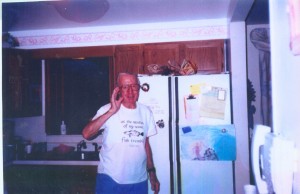

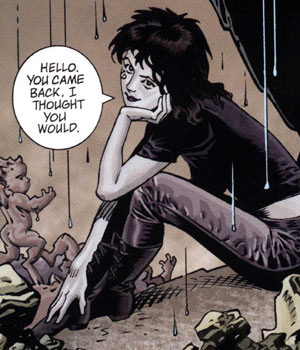

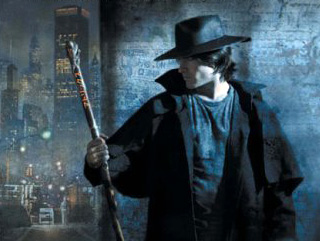

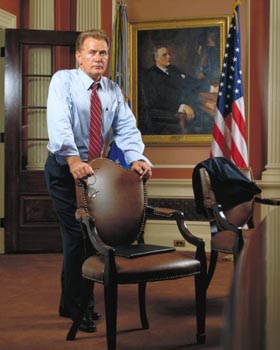







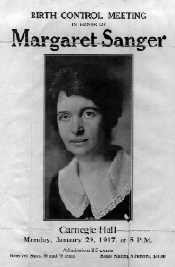
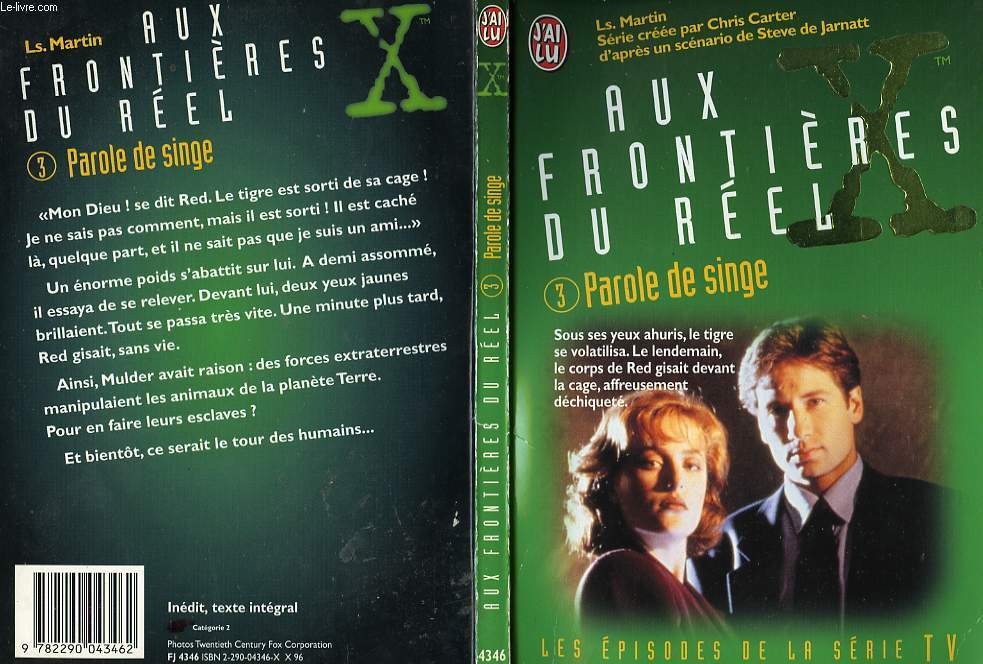 But she was right. Nicolas was a real live French gamer guy. I thrilled him in our first meeting by having Secret Knowledge. We were talking about TV shows, movies and books we liked, and he asked if I watched “Aux Frontières du Réel,” or “On the Frontiers of Reality.” I said I didn’t know it, was it French? “Non, non,” he insisted, and reached for a book. The cover explained it all—behind the French title was a distressed, typewriter-style X. “Oh,” I explained in French, “In America it’s called ‘The X-Files.’” “That explains everything!” he exclaimed. “I always wondered why that X was there!”
But she was right. Nicolas was a real live French gamer guy. I thrilled him in our first meeting by having Secret Knowledge. We were talking about TV shows, movies and books we liked, and he asked if I watched “Aux Frontières du Réel,” or “On the Frontiers of Reality.” I said I didn’t know it, was it French? “Non, non,” he insisted, and reached for a book. The cover explained it all—behind the French title was a distressed, typewriter-style X. “Oh,” I explained in French, “In America it’s called ‘The X-Files.’” “That explains everything!” he exclaimed. “I always wondered why that X was there!” I’d only seen Doctor Who played by Tom Baker on PBS, when I was about five years old. What I’d seen, I didn’t really remember, except, of course, the scarf, and several aliens that looked like upended rubbish bins on wheels. I’ve become a rabid fan since the 2005 reboot, and there’s no doubt I would’ve enjoyed the game more, knowing what I know now.
I’d only seen Doctor Who played by Tom Baker on PBS, when I was about five years old. What I’d seen, I didn’t really remember, except, of course, the scarf, and several aliens that looked like upended rubbish bins on wheels. I’ve become a rabid fan since the 2005 reboot, and there’s no doubt I would’ve enjoyed the game more, knowing what I know now.